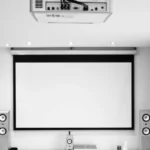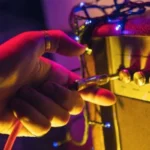If you’re trying to save money on home electronics, you’ve probably wondered if speaker wires can be used for power. After all, it looks pretty similar and has many of the same features as regular wiring. But Can Speaker Wire Be Used For Power? Is this safe? Let’s explain why you shouldn’t use speaker wire for power in your home.
Can Speaker Wire Be Used For Power
The short answer is no. Speaker wire, also called zip cord or lamp cord is unsuitable for powering devices because it’s not rated to carry electrical current. Therefore, it would be best if you never used speaker wire to replace traditional electrical wiring in your home or car. That said, some people will use speaker wire in certain situations where no other option is available.
Also Read: How Many Watts Do You Need For Outdoor Speakers?
Why You Shouldn’t Use Speaker Wire for Power
When it comes to understanding why you shouldn’t use speaker wire for power, there are three main areas of concern: safety, delivery, and design.
Safety: First and foremost is safety. While both types of wiring have insulation around the metal conductor, the insulation in the speaker wire isn’t meant to handle the electricity needed to power larger appliances and devices. As such, it could potentially cause electrical shocks or fires due to overheating or shorts. It also lacks grounding capabilities which could increase the risk of electric shock or fire hazard even further.
Delivery: Additionally, speaker wire is not designed to deliver consistent amounts of power like standard wiring is. When using speaker wire for power, you may experience voltage drops or surges that could damage your electronics or appliances.
Design: Finally, while both types of wiring look similar at first glance, they have different designs that make them incompatible. For instance, speaker wire typically contains two conductors (positive and negative), while standard wiring contains three (positive, negative, and ground). If you try using a three-conductor system with two-conductor wirings, such as speaker wires, it won’t work correctly and could damage your device or appliance.
Also Read: How To Power Outdoor Speakers?
The Difference Between Speaker Wire and Power Cords

At first glance, it might seem like there’s no difference between speaker wires and power cords—but that couldn’t be further from the truth. The main difference between the two is their gauge (or thickness).
Power cords are thicker and contain more strands of copper than speaker wire, making them better suited for transferring more significant amounts of electricity. Speaker wire, on the other hand, has fewer strands of copper and is much thinner in diameter. As such, it is not intended for use with large amounts of electricity.
Safety Issues
Using speaker wire as a power cord poses a severe risk to both your electronics and yourself. Since it is not designed to handle large amounts of current, it could get overheated or cause sparks, potentially leading to an electrical fire or, worse yet, an injury due to electrocution.
If you need a power cord for your audio equipment, make sure you purchase the correct type; using speaker wire as a substitute could have hazardous consequences.
Also Read: How Many Watts For Outdoor Speaker?
Conclusion:
So, Can Speaker Wire Be Used For Power? It’s not recommended that you use speaker wire for power because it poses a safety risk due to its lack of insulation and grounding capabilities and its inability to provide consistent amounts of electricity without causing voltage drops or surges.
Furthermore, its design makes it incompatible with standard wiring systems, so even if you could get it working correctly, there is still a chance that it would damage your device or appliance due to incorrect installation methods or incompatibility issues. Therefore, it’s always best practice to stick with standard wiring when dealing with electricity in your home!



